I’ve been in the recruitment industry since 1996 so I’ve seen a few CV’s in my time. Short, long, multi-coloured, with photos, with tables, some without a name on, written in pencil, produced on a typewriter, a few in video format, with coffee stains and one with a lipstick kiss!
It got me thinking that there is a preferred format, layout, structure that works better than others when producing an accounting CV and that I would share these with you, free of charge!
We’ll consider a few points….
READERS HAVE SHORT ATTENTION SPANS
The average view of a CV will be around 5-10 seconds so you have to hit them hard and fast with your opening.
With that in mind, it’s valuable to write a short PROFILE section. This should aim to be around 3-4 lines and needs to tell the reader a few key points about you that should include:
- – Your academic/professional qualifications
- – Depth of work experience
- – Sector experience
- – Key skills
- – Level of experience
Please avoid very generic words such as reliable, ambitious, trustworthy, motivated etc. An employer will assume you are all of these things.
To give you an example of a PROFILE section…..
“A qualified accountant (ACCA 2014), with 5 years accounting experience gained within the London Investment Management sector. Key focus within Private Equity and fund accounting roles, now seeking an opportunity to step-up in my career to a more senior fund accounting position”
WHERE TO INCLUDE ACADEMICS/QUALIFICATIONS
This will very much depend on the quality of those academics and how recently you achieved them.
If you are at the early stage of your accounting career, then your academics might be one of your key selling points, in which case you should include them high up on your CV.
As your career develops, your CV will be chosen for interview based on your actual work experience, in which case your academics should be placed at the back of the CV.
Please remember to indicate (wherever you choose to include your academics) what your grades were at A-Level and degree (if you are indeed a grad).
If you are a qualified accountant, then the year you were formally admitted to your respective board and whether you achieved first time passes.
If you are an accounting studier, then to include exactly what stage you are at, how many exams you have taken and/or when your next exam sitting is. This will indicate whether you are an active studier or not.
WORK HISTORY
There is often great debate as to what information to include here. After all, it is your career and you’re invariably proud of it and want to include as much as you can. My views are as follows:
- – The amount of space you allocate to a role should be commensurate to the amount of time you spent with a particular firm. A role you did for 6 months should be given far less time than one you did for 6 years
- – Sadly, as we get older, the roles we did historically will be far less relevant, so spend the most time on roles you have done over the last 3-5 years as this information will invariably decide on whether you will be chosen for interview
- – Include the full name of the company, location, dates of employment (month/year) and your job title/s
- – Don’t assume that the reader will know much about the firm you have worked for. Provide no more than 1-2 lines about the nature of the business
- – Provide (where applicable) quantifiable achievements
- – Indicate any promotions you have had, management experience, additional responsibilities – this will help differentiate you from your competition
- – Keep it concise – ensure it’s not too wordy
IT SKILLS
After your work history, you should include the level of expertise on relevant accounting systems, as well as Excel
INTERESTS
Some people say not to include any personal interests. I say to include some, it makes you more identifiable and more “human”
This is just scratching the surface and there’s much more I can discuss. For a free consultation on your CV, please email [email protected] or call on 0203 427 3011




